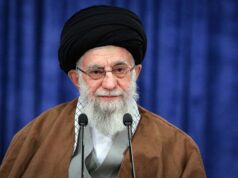WikiLeaks, the now infamous online organization devoted to revealing secret documents, released its first installment of secret American diplomatic cables Sunday, posting 220 of its more than 250,000 obtained cables online. The cables, most created over the past three years and many as recently as February, are a huge sampling of daily traffic between the U.S. State Department and some 270 embassies, and chronicle the United States’ relations with the its allies and enemies in the age of nuclear weapons, asymmetric warfare, and terrorism.
For example, one memo stresses concerns by Western governments that Islamist militants may gain access to Pakistani nuclear material, while another details that State Department personnel were ordered to collect intelligence on foreign dignitaries overseas and at the UN by gathering credit card and frequent-flyer numbers, work schedules, and other personal information.

Iranian Defense Minister Ahmad Vahidi (right) visiting Iran’s defense capabilities exhibition in Tehran. |
|
Perhaps the most interesting, however, are the many cables leaked about Iran. A cable dated February 24, 2010, claimed that Iran has obtained a cache of advanced missiles – many from North Korea – that are much more powerful than what Washington has publicly conceded Tehran has in its arsenal. In addition, another document confirmed that Iran used Red Crescent ambulances to smuggle weapons to Hezbollah in Lebanon during the 2006 war, and that the ambulance crews have also helped Revolutionary Guard officers infiltrate other states in the region.
Moreover, the leaked documents reveal that not only Israel, but many Arab countries are highly concerned with Iran’s nuclear weapons program. Officials in Jordan and Bahrain have openly called for Iran’s nuclear program to be stopped by any means, including militarily, while leaders in Saudi Arabia, the United Arab Emirates and Egypt referred to Iran as “evil,” an “existential threat,” and a power that “is going to take us to war.”
Overall, the reports on Iran largely explain what was already known among analysts and experts: Tehran is a world menace and the United States has, for the most part, ignored its evil schemes over the last decade. But as Iran’s strength grows (with North Korea’s help), world leaders will only continue to look toward the United States to act. With the U.S. still engaged in diplomacy, the Arab states are likely to hedge their bets as the reality of a nuclear-armed Iran appears inevitable.





